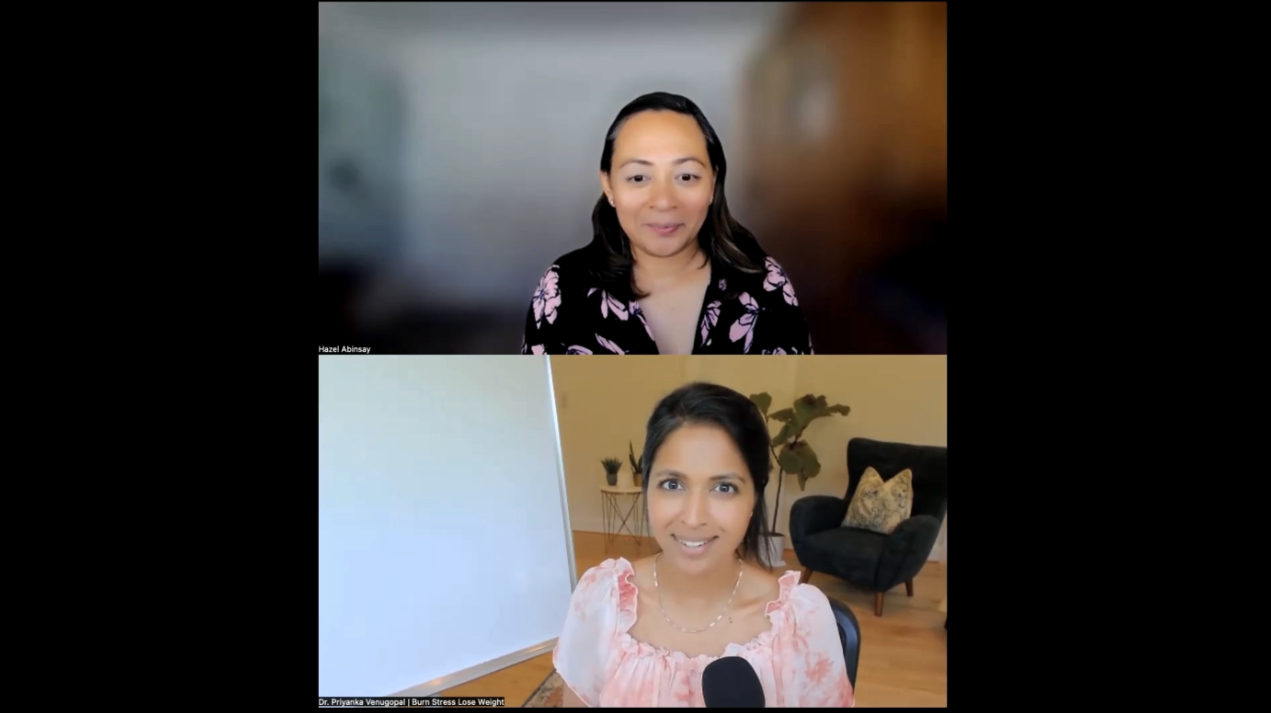Hi, I'm Dr. Priyanka Venugopal
Group coaching experience for professional women
WORK WITH ME
The Joyful Project
An ObGyn physician turned Stress + Weight Loss Coach, and mama to two wild kiddos. This is a show where story meets science + strategy where you’ll learn from my own epic fails, experiences as a physician and as a very busy mom who is dreaming big.
Feel Unstoppable with Science and Strategy
The Burn Stress, Lose Weight Group
Episode #165: Over 20 pounds down and Magic Action Decisions with Dr. Hazel A.
Summary
In this inspiring episode, I’m having a conversation with real client Dr. Hazel Abinsay, a busy pediatrician and mom of two who transformed her wellness journey with one simple mindset shift. From feeling like she was constantly “just trying to survive” to creating a sense of time freedom and losing 20 pounds in three months, Hazel’s story is a powerful testament to the impact of mindset, habit change, and coaching support.
Learn more about the group: https://www.burnstressloseweight.com/group
Get the Hormones Training: https://www.burnstressloseweight.com/hormones
What You’ll Learn from this Episode:
- How Hazel broke free from the yo-yo dieting cycle and reclaimed her time as a busy mom and doctor.
- How she shifted from scrolling and snacking as stress relief to truly restorative self-care.
- The power of “magic action decisions” and time audits to structure your day for success.
- How to find a sustainable, enjoyable way to lose weight without deprivation—and without giving up your favorite foods.
- How to embrace imperfection, keep your foot on the gas, and transform your relationship with your health.
Listen to the Full Episode:
Enjoy the Show?
- Follow: Get new episodes in your feed every single week on Apple Podcasts, Spotify, Google or search “Burn Stress, Lose Weight” on your favorite platform.
- Rate & Review: Take a few seconds and leave your review in the stars and comments of this show.
- Instagram: Come hang out with me on Instagram, you’ll find me in your daily feed @burnstressloseweight
Featured on the Show:
- Get the Hormones Training by clicking here.
- Want to work with me? Learn about The Burn Stress, Lose Weight Group by clicking here.
Available on:
